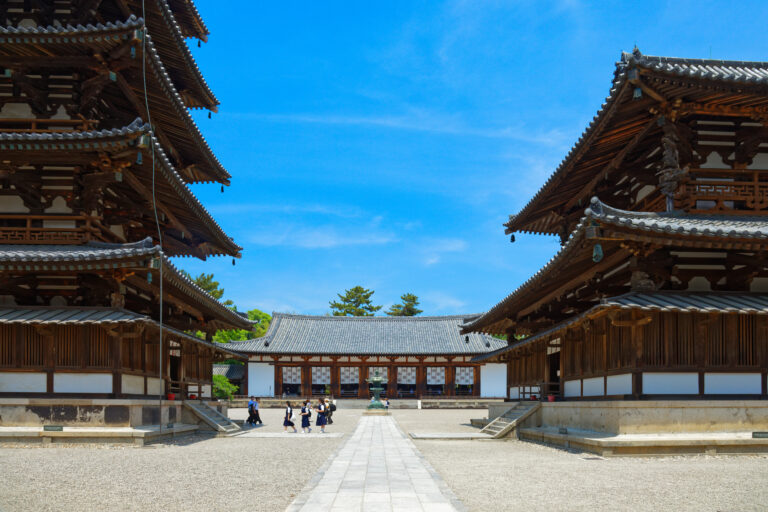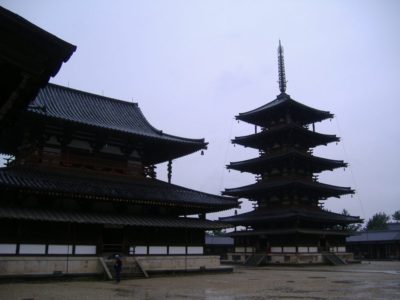The Horyuji temple in Nara was founded in 607 by Prince Shotoku. The temple has the oldest wooden buildings in the world. Horyuji was inscribed together with Hokki-ji as a UNESCO World Heritage Sites under the name Buddhist Monuments in the Horyuji Area. The Japanese government lists several of its structures, sculptures, and artifacts as National Treasures.

Outline of the Horyuji Temple
Horyuji is divided into two wings. The wood-grain patterns created by pressing the walls with boards are thought to make the walls earthquake resistant. The temple is something of a time capsule, preserving hundreds of artworks from the 7th and 8th centuries. It is also the pivotal figure that established Chinese culture in Japan.
The current temple is made up of two areas, the Sai-in in the west and the Tō-in in the east. The western part of the temple contains the Kondō (Sanctuary Hall) and the temple’s five-story pagoda. The Tō-in area holds the octagonal Yumedono Hall (Hall of Dreams) and sits 122 meters east of the Sai-in area. The complex also contains monk’s quarters, lecture halls, libraries, and dining halls.
The famous statue of Miroku Bosatsu is situated at the Chugu-ji Temple which is next to Horyu-ji Temple. The statue is a slender, youthful figure, fingers of the right hand poised near the cheek, head tilted forward as if listening, eyelids lowered, who is meditating on the sufferings of mankind.
Your Japan Tour
As seasoned Japan experts, we create perfect Japan package tours including destinations like Nara. Check out our group tours and private tours, or contact us to start planning your unforgettable holiday to this fascinating country full of once-in-a-lifetime experiences, culture, history, nature, and delicious food!
Access Information
Access:
From Horyuji-Mae or Horyuji-Sando bus stop
Entrance fee:
Adults 1,500 yen, Elementary and Junior high school students 750 yen
Hours:
February 22 to November 3: From 9 am to 5 pm
November 4 to February 21: From 9 am to 4.30 pm
